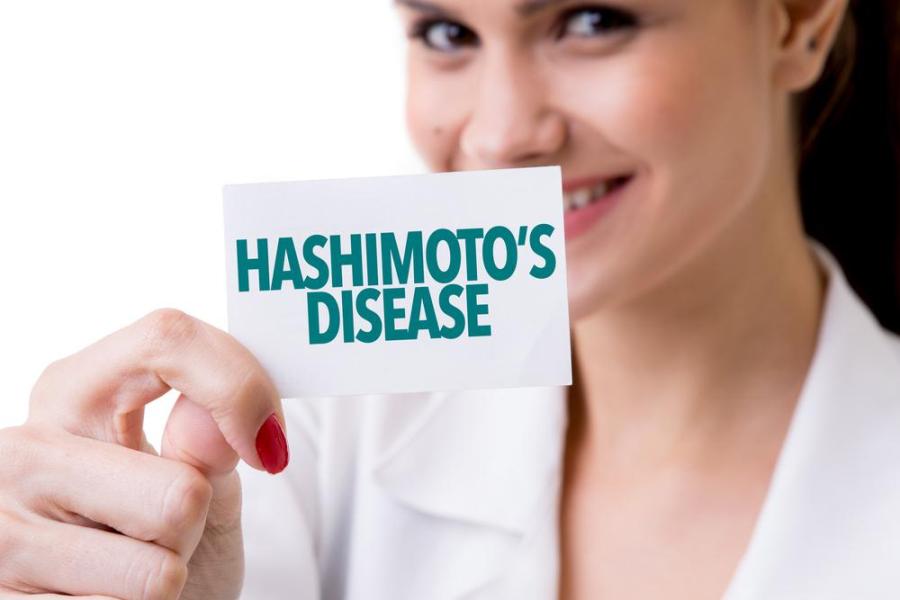
Hashimoto’s Thyroiditis
Hashimoto’s, also referred to as autoimmune thyroiditis, is a chronic inflammatory autoimmune disease where thyroid is attacked by autoantibodies leading to hypothyroidism. It is the most common type of hypothyroidism and typically develops in adulthood. The exact causes are not known, but Hashimoto’s is thought to be the result of an inherited predisposition plus a triggering event. The triggering event sets off a chain reaction in the immune system that causes the body to mistake its own cells (the thyroid cells) as foreign cells that must be destroyed. As tissue is destroyed the thyroid’s ability to produce thyroid hormone decreases. Some patients will present with a goiter (growth on the thyroid) due to the inflammation, while others will present with atrophy (decreased size of thyroid) due to destruction of tissue.
Pathology
When thyroid hormone levels (T3 and T4) dip below normal levels the parathyroid will send out TSH (thyroid stimulating
hormone) to the thyroid telling the thyroid to make more thyroid hormone. However, since the thyroid is injured it is unable to produce more thyroid the TSH levels will be high while T3, T4, levels will be low.
Subclinical Hypothyroid:
- Early immune response causes inflammation of the thyroid tissue and a slight decrease in thyroid hormone production due to tissue damage. Not all people with hashimoto’s will go on to develop hypothyroidism and may stay in a subacute state of slightly lower thyroid hormone being produced, but not low enough to warrant treatment.
- Elevated TSH, borderline T3, T4, asymptomatic, antibodies present
- There is a current debate between providers if symptomatic subclinical hypothyroid should be treated with hormone replacements.
Diagnosed Hypothyroidism
- Chronic inflammation and destruction of thyroid tissues results in a substantial deficiency in thyroid hormone.
- Elevated TSH, low T3, T4, symptomatic, antibodies present
- In most cases the progression from the sub-acute state to full blown hypothyroid is gradual. Therefore the symptoms are often slow developing and in many cases the patient doesn’t realize they are experiencing them until they are extreme.
The exact cause or trigger for Hashimoto’s is unknown. Proposed causes are genetics, aging, environmental, viral, dietary, and other autoimmune disorders.
- Aging
- Hypothyroidism increases with age
- Most patients are over 30 years old at time of diagnosis, this is not to say it does not occur in youth.
- Sex
- Occurs more often on women.
- 70% of the cases are female while 30% are male
- Family History
- Hashimoto’s is seen in families
- No genes have been identified at this time
- Viral or bacterial infection triggered autoimmune response
- Environmental triggers
- pesticides
- too much iodine
- not enough iodine
- toxic chemicals
- Autoimmune disease and conditions
- Diabetes
- Lupus
- Celiac disease
- Dietary
- Food allergies
- Gluten intolerance: the molecules of gluten are thought to mimic the molecules of the antigens that attack the thyroid
- Soy
- Goitrous foods
- Anorexia




